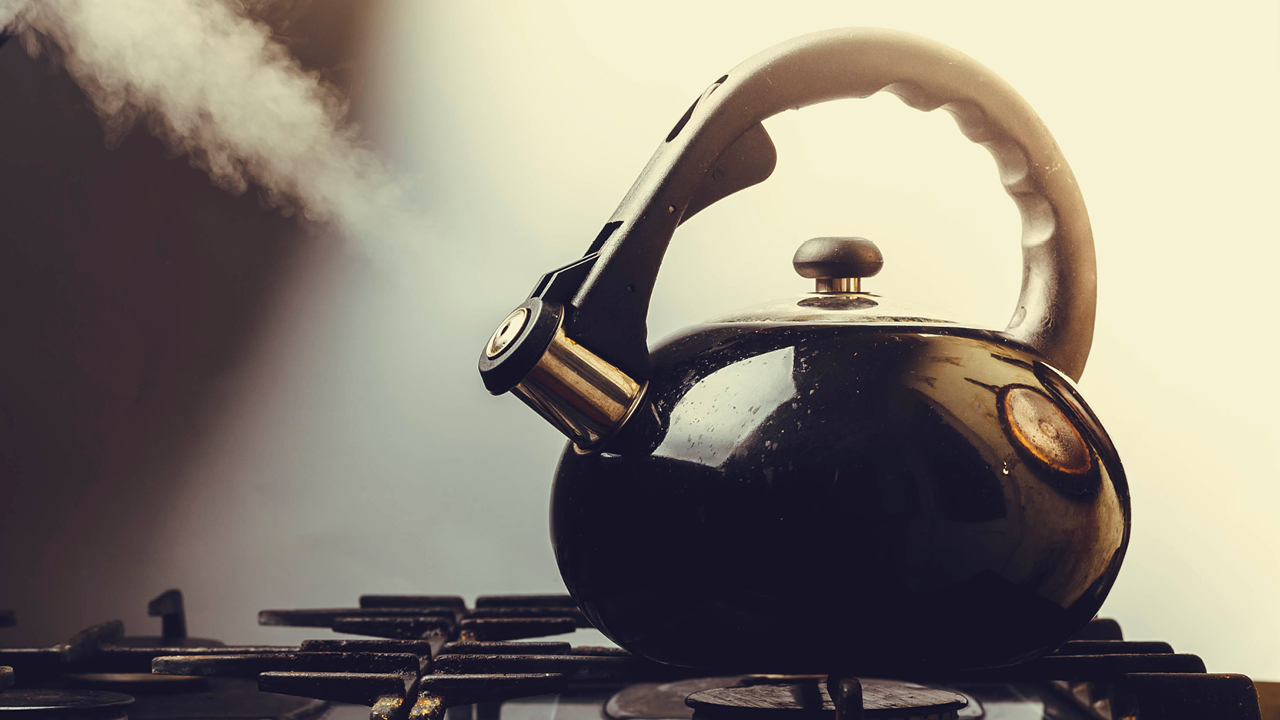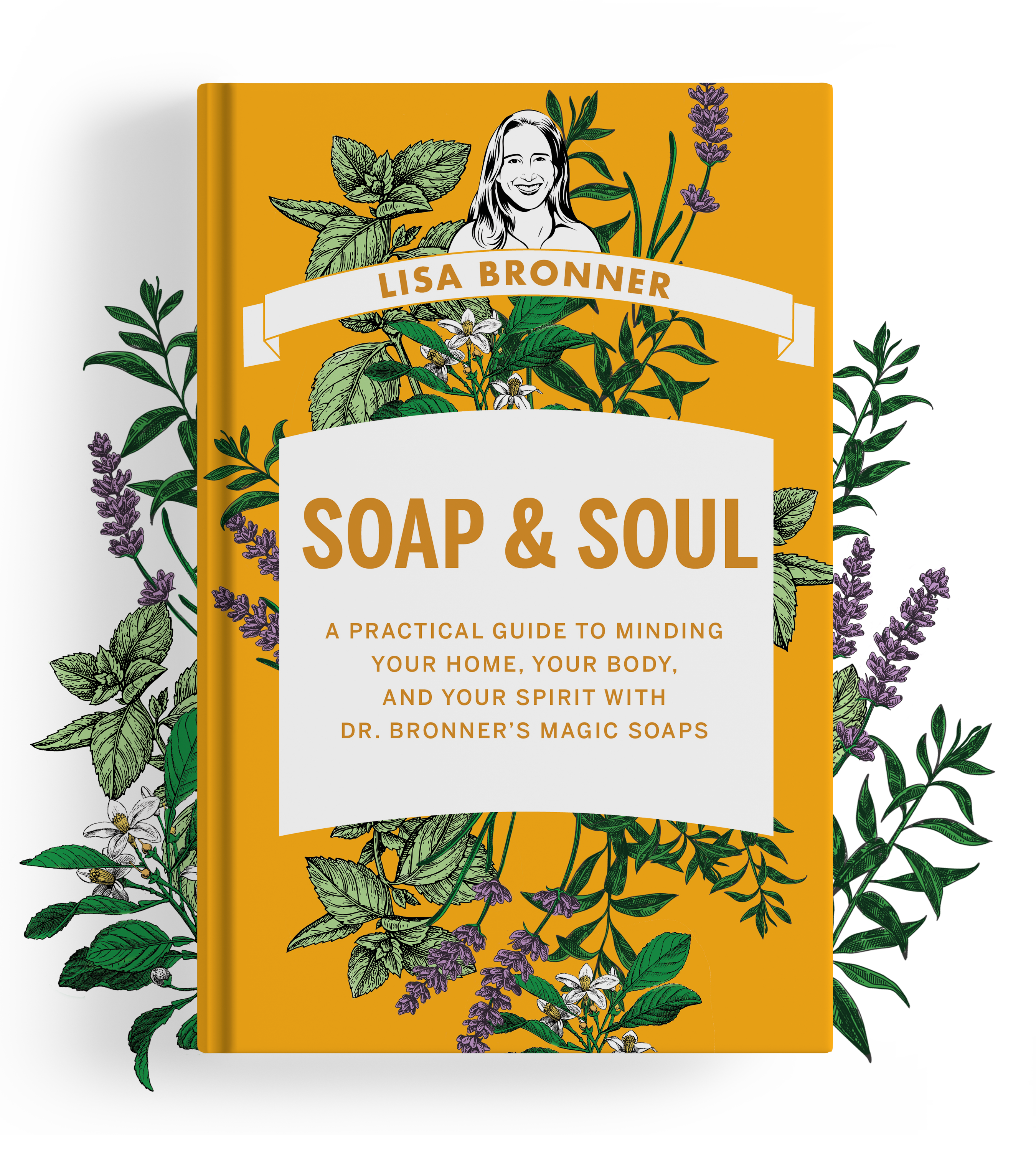
Let’s back up a bit and look at the big picture of how things get clean. There are three ways by which anything can be cleaned: Thermally (heat), Mechanically (scrubbing), or Chemically (bonding/dissolving).
Thermal cleaning
Thermal cleaning works in several ways depending on the nature of the dirt. For greasy dirt, heat melts the oil allowing water to wash it away, or if soap or detergent is involved, the liquid grease more easily bonds with the soap or detergent and can be carried away. For germy dirt, heat can kill the beasties. And overall, high enough heat will burn away anything.
Mechanical cleaning
With mechanical cleaning, we’re talking about elbow grease, brute force, i.e. old fashioned hard work. Fortunately, many modern devices do the sweaty work for us. We no longer need to beat our carpets with a broom handle; we have vacuum cleaners to beat them for us. We also no longer need to spend hours with a washboard; our washing machines have taken their place. Mechanical methods of cleaning work by pushing, scraping, sucking, blowing, beating, rubbing or otherwise physically moving dirt from an object.
Chemical cleaning
Lastly, let’s take a look at chemicals. The connotation of the word “chemical” can be rather negative, but for the purpose of this classification, even Dr. Bronner’s Castile soap, vinegar, and baking soda are chemicals. Chemicals work at the molecular level, eliminating dirt by either bonding with it so that water can carry it away, or by breaking apart the dirt at the molecular level, or by killing germs through various means of cell destruction.
Combining the power of three
In many situations, we use all three methods without thinking about it. In hand washing dishes, we start with some detergent (chemical), add hot water (thermal), and start scrubbing with a brush (mechanical). In our washing machines, we set the water as hot as the clothes can take (thermal), add some detergent (chemical), and let the machine agitate the clothes clean (mechanical). Even for ourselves, we step into a hot shower (thermal), apply some soap (chemical), and scrub ourselves down (mechanical).
Occasionally, one cleaning method is used alone. When that happens, the intensity of the method must become extreme. For example, when an oven is set on “self clean”, wherein the oven is cleaned by heat (thermal) alone, it reaches a temperature around 900° F. This is why most ovens automatically lock.
Similarly, when chemical cleaning is used alone, the chemical must be extra powerful. Herein lies the problem. The selling point for many conventional cleaners is that they require little, if any, work other than spraying them on. Maybe you’ll have to wipe them away, but maybe just a rinse with water. Maybe not even that.
In order for these chemicals to be able to do that, they must be very intense. They are effective at eliminating dirt and germs, but they do it in such an over the top, no holds barred, anything and everything sort of way. They are toxic to any living thing including us; they don’t readily biodegrade so they’re around for a while; and they’re contributing to a vicious cycle of fostering resistant bacteria which require even harsher chemicals. They’re about as safe as sticking your hand in that 900°F oven.
Instead of relying on these Pyrrhic chemicals, remember the other weapons in your arsenal. When faced with a cleaning challenge, figure out how you can combine thermal, mechanical, and chemical action. These three forces combined will get the job done.








[…] the safest and most effective cleaning: Heat. Attack messes with the triple punch of cleanliness: thermal, mechanical, chemical. (Bear in mind that “chemical” means something that cleans on a molecular level, […]
[…] in mind what I’ve said about how things get clean: chemically, manually, or thermally. If you just try to clean with one of these means – let’s say chemically, what you use is […]
Hi Lisa,
I know that this is a really old article but I was wondering about UV light cleaning/sanitizing. Does this fall under it’s own category or is it considered cleaning mechanically. When I say UV I mean either using a UV light/wand and also the sun.
Thank you,
Sean
Hi Sean – That is a super interesting question that I hadn’t considered. UV provides some disinfecting, but studies are showing that they are most effective as a follow-up to some other sort of cleaning method. So, if you wash your laundry and then hang it on a line to dry outside, the sun would provide some extra UV help there. The light wands might help a little afterwards as well on surfaces, but don’t rely on them as your main source of cleaning. Sure would be nice, though, if we could wave a wand and clean it all!!
Are Dr. Bronner’s products safe for granite counters?
Hi Lily – Yes, they are safe for granite.
Hi,
I have been tasked, if I so choose to clean top to bottom a huge verticle milling lathe at our gear mfg facility, the dimentions of this machine are huge, 75 ft x 75 ft x 45 ft ht, with a sub floor of 50 x 50 x 10ft, there is a rotating table about 18 ft dia x hundreds of hi-pressure hydraulic lines, hundreds of electrical cable, although most of this is behind panel covers, they, management, want the machine to pop so to speak for visiting customers, how would you advise going about this in an organized fashion and do a very good job
thanks
Tim Smith
HMC Gears
Great idea, Bess!
An idea to your quandary in the email that linked to this… a hot water pitcher.. that way you have your hot water and aren’t wasting water to heat the rag. Just put your rag in something and pour the hot water over it to soak up the hot water.. granted I’d add a bit of cold from the tap to cool it just enough to handle it..
Hi Vera – I am so glad that the soap and Sal Suds helped with your rug. No, it will not attract more dirt. If you rinsed it well with water, the soap/ Sal Suds are out. Excellent tip about garage floors – I have a few oil spots on my own that I should tackle.
All the best,
Lisa
Lisa
just thought I would add an addition to the above post, when the rug was moved the garage floor beneath the rug was very very clean. So an added bonus. Sal suds and Dr Bonners soaps are also great to clean the garage concrete.
Hi Lisa
I couldnt wait to tell you my story. To begin, I broke my arm in May, so the house cleaning went a little bit slack. I have a sunroom in which my two dog stay and they are pee pad trained, unfortunately, they think anything that might look like a peed pad is a peed pad including my indoor/outdoor 5×7 rug. It smelled to high heaven. I usually shampoo it once a week so, but due to the injury couldnt. This morning, my husband took the rug out to the garage, I sprayed it down with water, then proceeding to squirt Dr Bonner’s lavender and peppermint soap all over it, worked it in with my broom, and rinsed with the jet setting on the water hose, I then used sal suds, sweep it in, and rinsed, rinsed rinsed; used my hoover stream cleaner to get the water out so it would dry quicker, after all the dogs new a clean peed pad. It smells wonderful. Will it attack more dirt, because of the oils in the soap, I dont know and really didnt care, as I will clean it weekly now, it smells so good and looks wonderful. I thought about adding tea tree soap at the end, but I was pooped by this time. it only took about 30-45 minutes or so, but I am old and cant do what I used to could. I love Dr Bonner’s soap and thank you so much for all the recipes and directions.
Hi Danielle – I would agree that bleach is not the best option with pressure washing. Bleach does not biodegrade readily and has a nasty affect of killing vegetation. Not surprisingly, I would go with Sal Suds. Keep the concentration very low or you’ll have lots of bubbles, but it will be effective and will not hurt the vegetation at all and is much safer for your husband and father as well. It biodegrades very quickly, even if you have excess bubbles.
If you try it, let me know what you think.
All the best,
Lisa
Hi Lisa and others! I figured this would be a good place to post my question…
As I was watching my father and husband pressure wash the driveway and sidewalk, I was wondering if anyone knew of something to use other than bleach. While I don’t necessarily think that pressure washing the sidewalk is important (apparently our homeowner’s association thinks it is), there is also the “need” of pressure washing the roof top. My dad has always used bleach and while it does work, it also leads to the destruction of the bushes and other plants around the home (especially when cleaning the roof).
So, the question- is there anything that we (any of you) know of to replace bleach with in terms of pressure washing surfaces?
Thanks!
Danielle G.